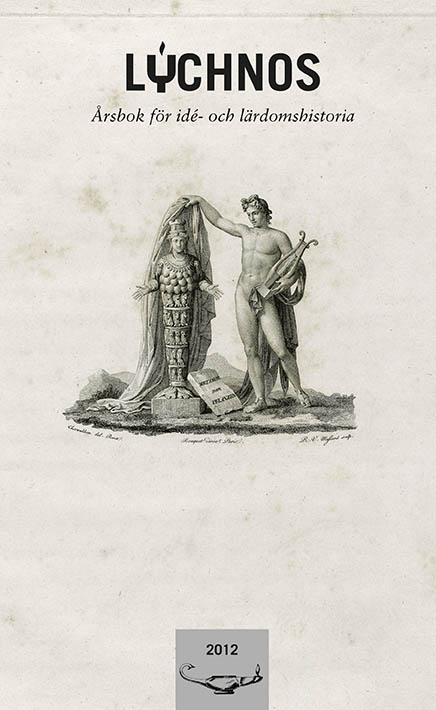Classical Others
Anthropologies of antiquity
Abstract
Anthropology is, together with archaeology, history and art history, one of the academic disciplines that exercise most influence on classical studies. The mutual influences between anthropology and classical studies have previously received scholarly attention, but, to the best of my knowledge, these assessments have not incorporated the cultural turn from the 1980s onwards. In this article, a critical assessment of anthropological influences on classical studies with particular focus on studies from the cultural turn is offered. In order to appreciate the various traits of anthropological influences in the cultural turn earlier appropriations of anthropological models in classical studies will be discussed. This account is by no means intended to be exhaustive, rather it is selective. The aim of the paper is to identify different themes, discourses, and even trajectories which have originated in anthropological reasoning and then been appropriated by classical studies. An example of the widespread practice of appropriation, dating back to at least the nineteenth century, is the use of anthropological examples from other cultures to shed light on ancient phenomena. The examples used range from minute isolated cultural phenomena to institutions and social systems. During the cultural turn, scholars turned to anthropology both for comparative insights and for theoretical guidance. Widespread notions such as the negotiated and mutable nature of culture and the permeation of power in all segments of culture have also been appropriated in classical studies. Crucially, with the cultural turn came an epistemological shift which designated a hermeneutical interpretive framework, founded in Clifford Geertz’s anthropological method, as a heuristic ideal for the humanities.
Downloads
Publicerad
Nummer
Sektion
Licens
This work is licensed under a Creative Commons Attribution 4.0 International License. The copyright for the work published in Lychnos remains with the authors.


